Playing politics: The ascent of America’s noisy new lifestyle brands
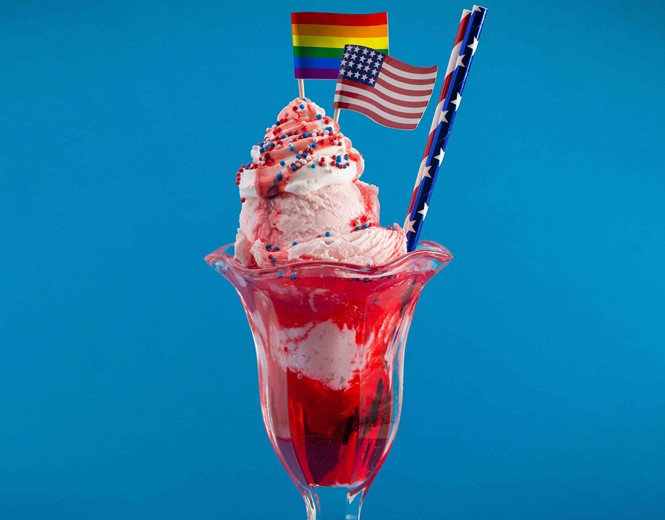
Following a societal sea change in the US over the past decade, companies are taking lifestyle brands a step further by making them hyper-opinionated. A winning strategy or a whiny mess? Jack Cousins takes a closer look.
You don’t have to live in America to be at least vaguely aware of the cultural divide that is splitting families, communities and indeed the country itself apart. Broadly speaking, one side claims progressive change is the antidote to the systemic oppression of minority groups while the other side, unconvinced of whether such discrimination even exists, places greater stock in more traditional American values, such as freedom of speech.
Best illustrated through social issues such as abortion, immigration and LGBT rights, two disparate worlds have formed. With the Blue side and the Red side not even agreeing on basic principles, new mediums offer themselves up as battlegrounds where the culture war can rage. Once generally confined to media outlets, political discourse has been opened up by technological innovations, like social media, to everyone at every moment. People seem to either find importance or entertainment in this, and brands are catching on fast.
It can feel like everyone has an opinion and, with the chasm between these two competing worldviews widening further year-on-year, brands had better quickly pick a side or else fall through the crack. An interesting aspect of this trend is that it even, or perhaps particularly, invites the biggest brands to partake. For instance, Nike renewed NFL quarterback Colin Kaepernick’s endorsement deal in 2018 following his refusal to stand during the national anthem. To some it was a powerful protest calling for racial equality, while to others it was offensive and anti-American. Nike knew that not everyone accepted or even tolerated Kaepernick’s worldview, but still took that risk by making him the face of the brand.
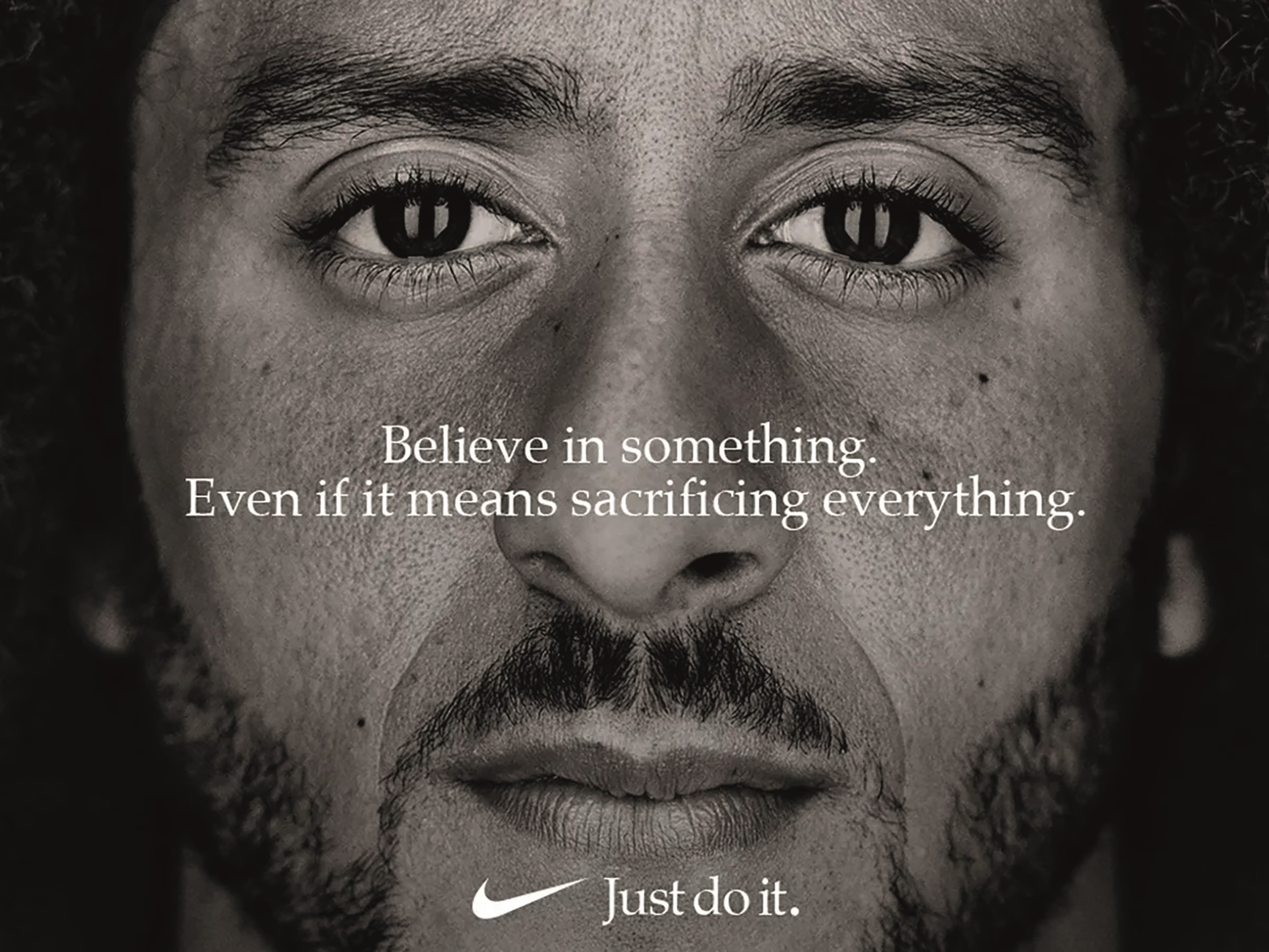
Once favouring more opaque tactics like lobbying, big US companies have always used politics as a means of obtaining an advantage. What has changed, however, is that the new terrain actively encourages them to openly voice opinions through brand. This would have been a no go in the more socially conservative and closed society of the past. Well, for most brands.
Cash cow
A long-time exception, however, is Vermont-based ice cream company Ben & Jerry’s. Founded in 1978 by two hippies (aptly named Ben Cohen and Jerry Greenfield), it has since become one of the world’s most outspoken brands on issues ranging from climate change to racial justice to Britain’s immigration policies. It has always been socially conscious, as demonstrated by the creation of the Ben & Jerry’s Foundation in 1985, which supports local community projects. But by the late 1980s, the brand had started to resemble what it is today by wading in on tricky social causes.
It could simultaneously take stances that ranged from the relatively uncontentious, like publicly denouncing artificial growth hormones that increase cow milk production, to the decidedly unpopular. For instance, promoting the legalisation of gay marriage, at a time when most Americans opposed the idea, was a sure enough way to rock the boat. It might seem a confusing move for a brand to upset the majority of a public, but Ben & Jerry’s head of global activism strategy, Christopher Miller, understands better than anyone the thinking behind it.
“We've never shied away from controversy,” he says. “The company, for almost all its 45 years, has really tried to use its platform and its connection to consumers to be advocates for progressive social change. We let our values and what we believe is the right thing to do in the world guide those decisions. And yes, there are times when the things we support aren't popular.”
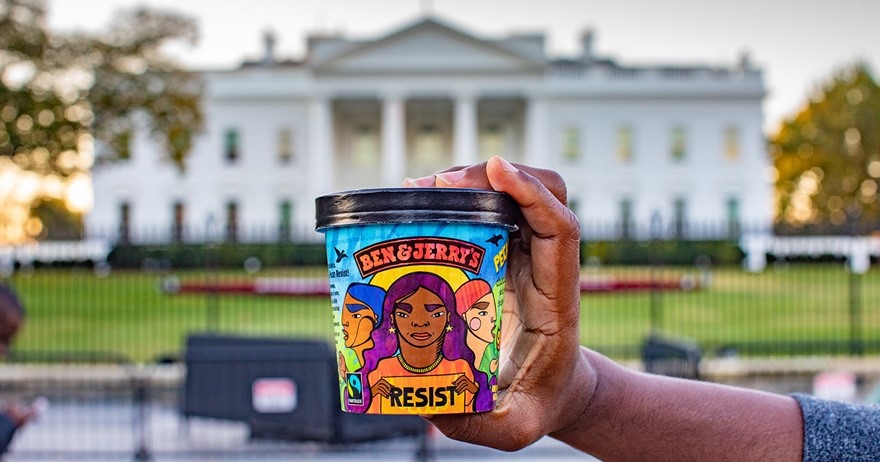
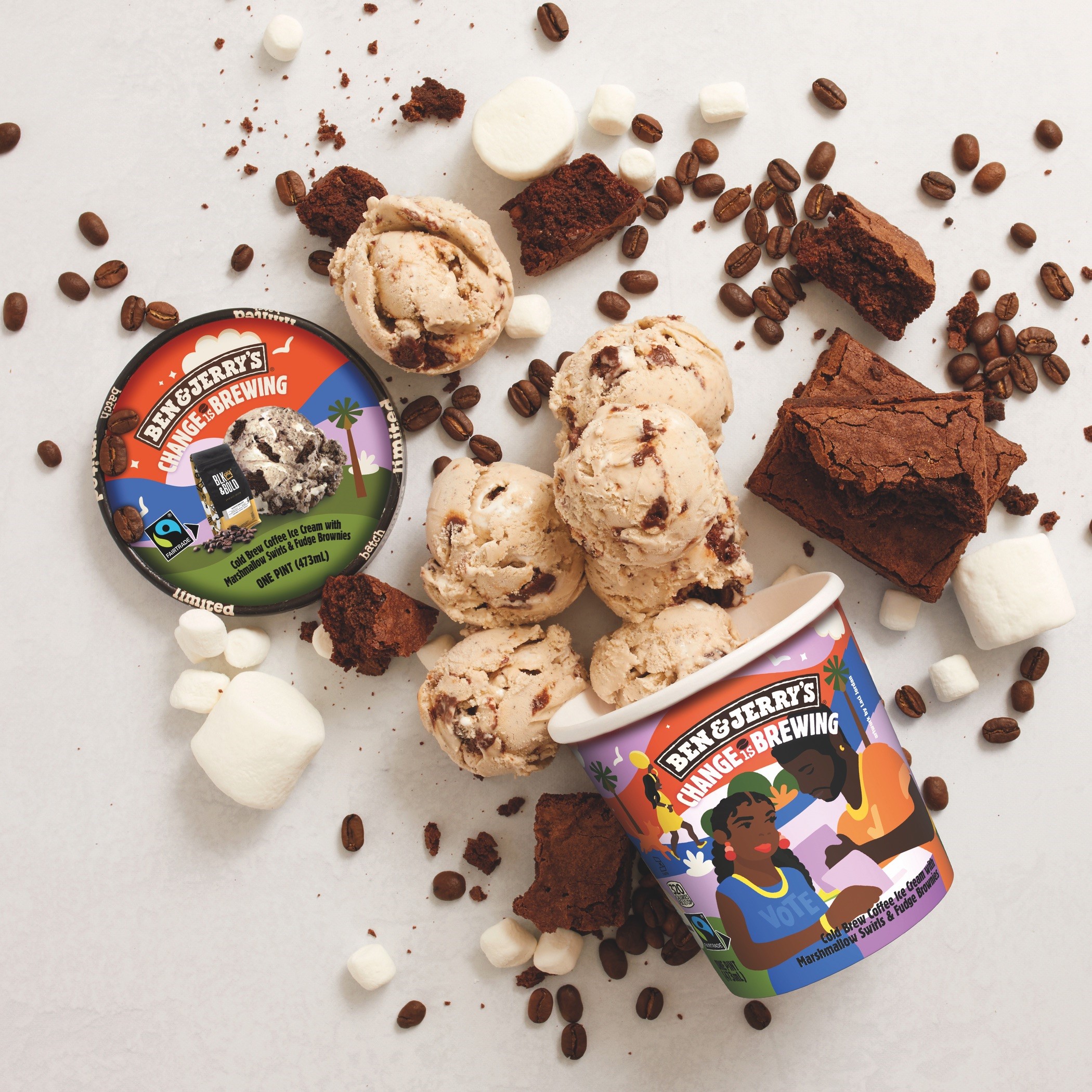
As time moves on and the issues of the day change, so too does Ben & Jerry’s. In 2018, the US discovered what an anti-Donald Trump ice cream tastes like (chocolate with fudge chunks and a variety of nuts, since you ask) for a campaign which sought to raise awareness of the then-president’s record on women’s issues, immigration and climate change. The reappropriated New York Super Fudge Chunk was named ‘Pecan Resist’ and so, on the off chance any Americans were unaware of the president’s views, Ben & Jerry’s had them covered.
The brand shows no sign of slowing down on drawing attention to progressive causes. Just last September, ahead of the crucial midterm elections, Ben & Jerry’s rebranded its Change is Brewing ice cream to encourage greater black voter turnout. Combatting what it describes as “extreme efforts” to discourage black people from voting in states like Georgia, the brand teamed up with Black Voters Matter to educate the public through its reimagined product. Then again, supporting such causes is not always plain sailing.
Miller explains, “When we first stepped out in support of the Black Lives Matter movement in 2016, colleagues down here in the consumer affairs department literally had the phones ringing off the hook. I kid you not, for two weeks straight we had people screaming at us that we were supporting a terrorist organisation.”
A taste of freedom
While mammoth companies like Ben & Jerry’s, Nike and Airbnb have all used brand as a means of championing progressive views, this phenomenon should not be confused for being exclusively liberal. Black Rifle Coffee Company, founded in 2014 by former US Army Green Beret Evan Hafer, was specifically designed to serve coffee to those who “love America”. Pushing back against multinational competitors, whose values often centre around wanting to highlight America’s flaws, Black Rifle’s patriotic streak helps it stand out.
Its pro-military, pro-police outlook is antithetical to Starbucks’ values, with whom it started a feud in 2017 after the world’s largest coffeehouse chain pledged to hire 10,000 refugees. In turn pledging to hire 10,000 veterans, Black Rifle positioned itself as the conservative alternative to Starbucks. The culture war was now being waged through brand – as well as the polling station – on both sides.
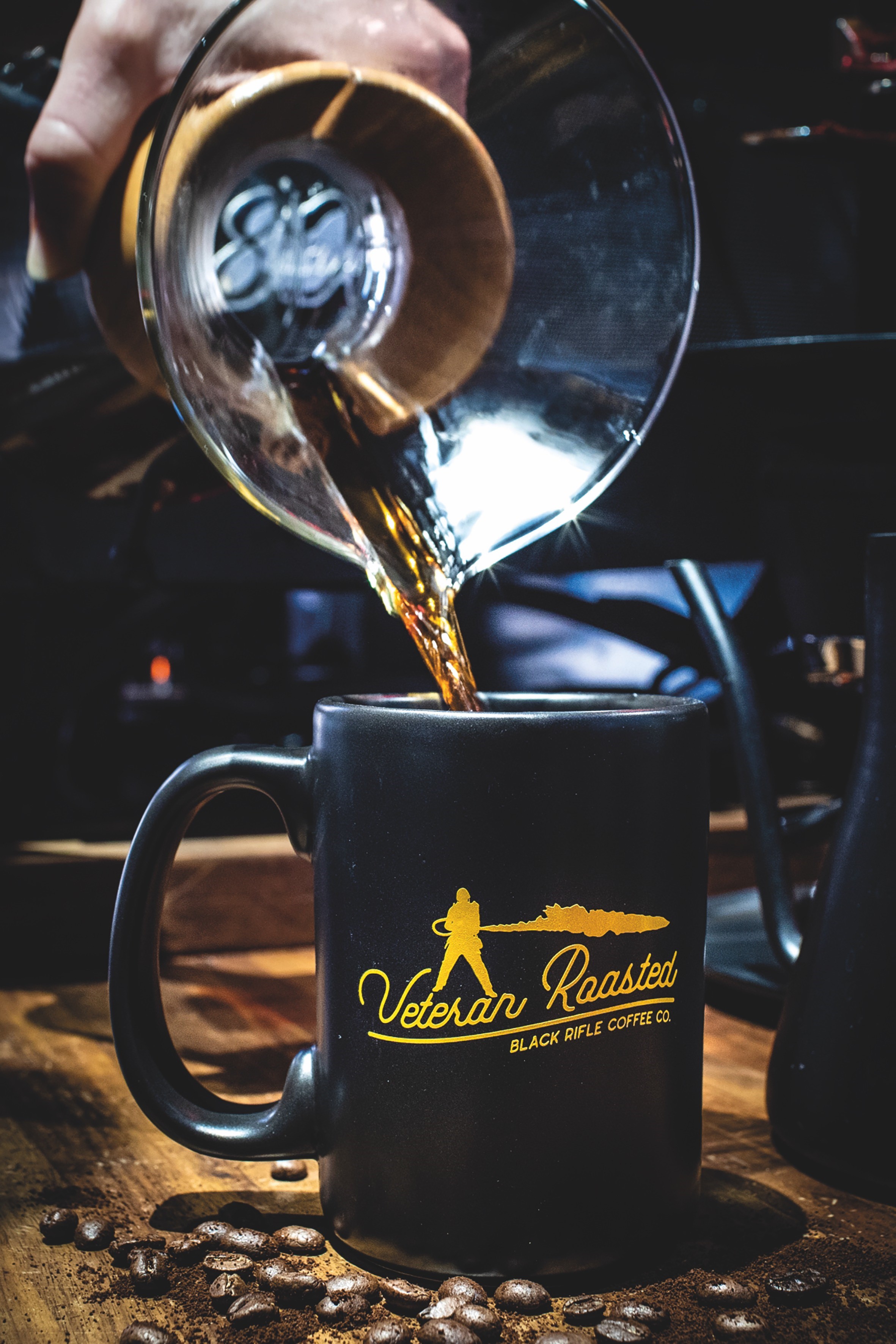
Black Rifle is a lifestyle brand in the truest sense. The ‘Starbucks of the right’, as some call it, commands a remarkable brand loyalty which is achieved by maintaining its militaristic, high-energy image. And it far exceeds merely donning gunships, bald eagles and US flag iconography on its products and merchandise. Black Rifle’s YouTube channel, replete with guns, steely-looking bearded men and skits mocking liberals, gives its audience a whole new dimension to interact with the brand. Its videos regularly garner millions of views and the brand even launched a print magazine, Coffee or Die, to further underline its seismic appeal.

It seems we have entered an era where brands attempt to command intense loyalty amongst smaller segments of the market, as opposed to being vaguely popular amongst the majority. It’s no wonder why, given this strategy appears to be working wonders for Ben & Jerry’s. As Miller reminds us, they’re now a billion-euro company.
“This company has grown year-on-year, give or take a little bit, since 1978,” he says. “I would suggest that people connect with our brand around a shared set of values, and that's what drives the business. We can certainly say that taking these political positions and using our platform to advance progressive social change certainly doesn't hurt us; we've got the results to prove that.”
The success seen by Ben & Jerry’s is reflected in research conducted by consumer intelligence company Resonate. Its 2022 report on value alignment indicated most consumers do take note of brand values and change their purchasing preferences accordingly. While the data tells us more than half of American consumers will change their likeliness of purchasing a brand that takes a stand on the big issues of the day, such as supporting Ukraine (57.6%) or voicing pro-life views (58.8%), the extent to which they support or oppose the brand depends on the specific issue itself. For instance, just over 10% of consumers are less likely to purchase from a brand that supports Ukraine, while just under half stated they were more likely to purchase from that brand.
Ericka McCoy, chief marketing officer at Resonate, is fascinated by the relationship between brand values and consumer preferences. She says, “One thing we saw in 2019, which was the first year we identified it, was this idea of the consumer activist. Consumers were really starting to hone in on what brands stood for and if the brand's values were not aligned with their values.”
While the trend had been prevalent for some time and growing each year, it was the murder of George Floyd which sparked an “intense shift” towards US brands signalling social values. As it turned out, this was an acid test for outspoken brands in which the veracity of their beliefs they had carefully cultivated would stand trial. As McCoy points out, consumers were keeping an eye on how brands responded. Those who had not proven themselves as serious about social justice (we all know at least one brand who meekly settled for posting a black square on Instagram) felt inauthentic. Meanwhile, companies like Nike, whose brand is intertwined with progressivism, reaped the dividends. Partially fuelled by the easing of Covid-19 restrictions, Nike’s global revenue skyrocketed nearly 20% in the year following Floyd’s murder.
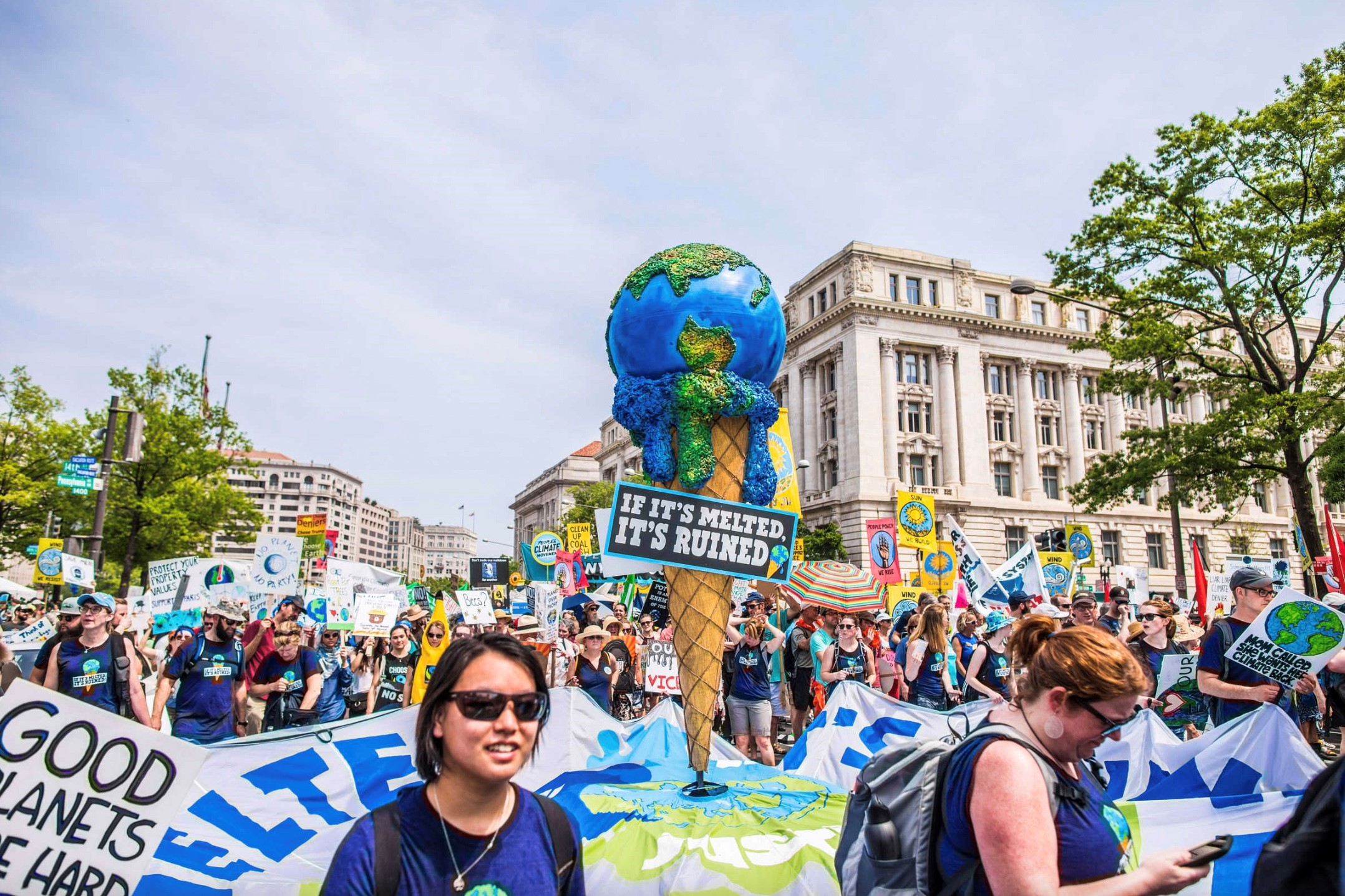
While some consumers may be drained and irritated by brands constantly bombarding them with beliefs they don’t hold, McCoy believes Resonate’s data indicates Americans are far more frustrated with the politicians directly responsible for resolving social issues. At any rate, it doesn’t seemingly matter to a brand like Ben & Jerry’s if the espousing of its values did turn some consumers off. The point is that not everyone has to be onboard to design a sturdy, lucrative brand.
Miller explains, “We don't need everyone to eat Ben & Jerry’s. If you don't think racism is a thing, then have at the Häagen-Dazs. We don't need 100% of the planet to eat Ben & Jerry's to have an incredibly strong business. We need a strong consumer base who loves our products, who are passionate about the mission and who connect with us around a shared set of values. And that's how we continue to build and grow the business.”
Taking liberties
While it seems difficult to argue with the effectiveness of this brand strategy, some might question the morality of it. They might ask why the public should be lectured by brands – of any political persuasion – when the brands themselves are rarely squeaky clean. Nike’s commitment to domestic social justice has long been overshadowed by its dire foreign working conditions. Hoping its Asian sweatshop allegations from the 1990s had long been forgotten, a 2018 report by Clean Clothes Campaign found the average salary of its garment factory workers in Southeast Asian countries is still significantly below the living wage. When profits are on the line, a brand reveals its true motivations. A social media campaign calling for equality is cheaper than producing goods ethically.
Even Ben & Jerry’s was embroiled in controversy in 2015 when Migrant Justice activists protested outside its stores and Vermont headquarters. They claimed immigrant farm workers in its supply chain would work up to 14 hour shifts without a day off, with some even being housed in barns, like animals. When a brand has such strong views on immigration, and is more than happy to go after political figures like Britain’s former home secretary Priti Patel for falling shy of those standards, it can look weak when the tables are turned. Despite accusations of hypocrisy being levelled at Ben & Jerry’s, Miller has an interesting perspective on what the incident actually means.
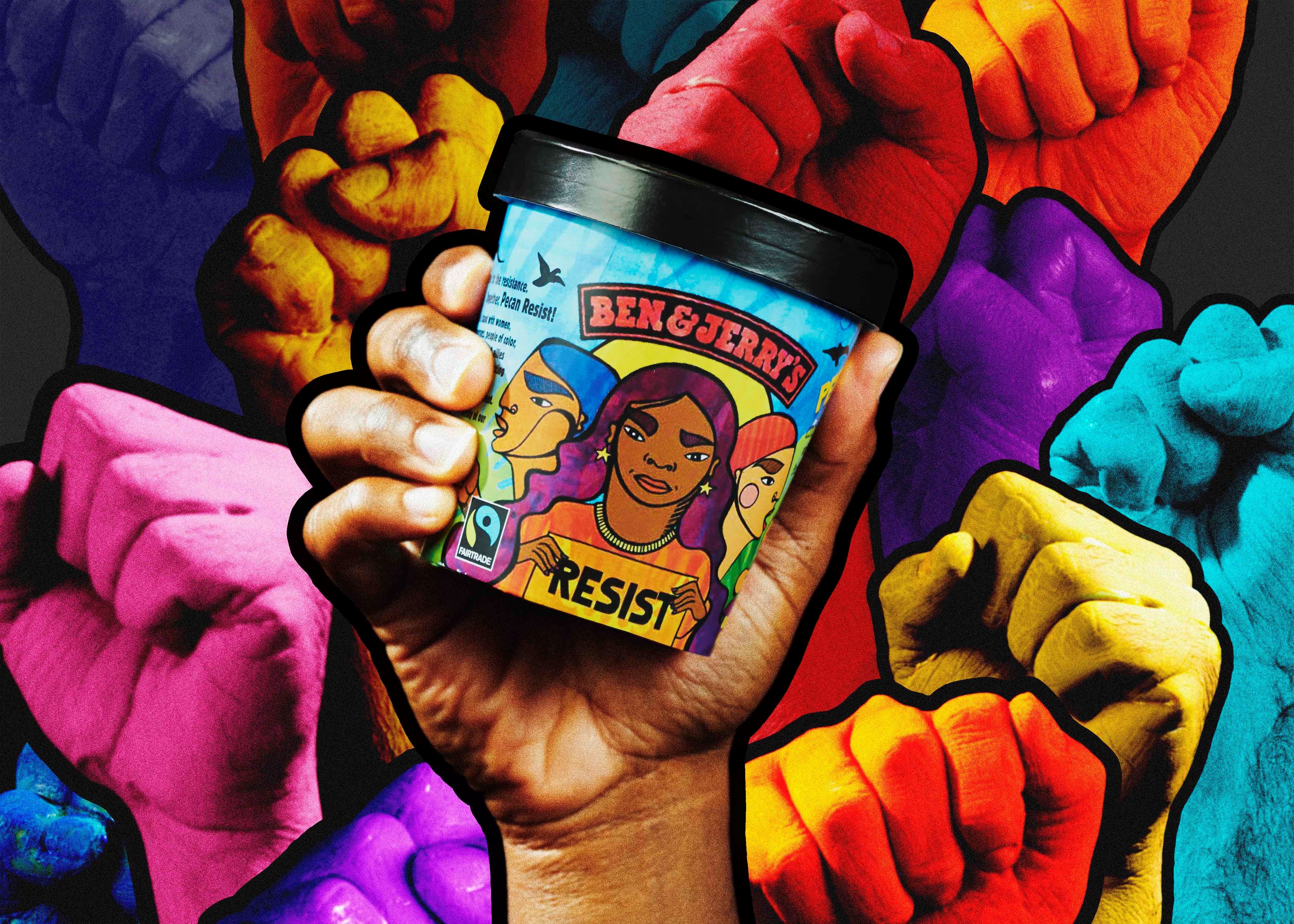
“Let me start by saying the folks at Migrant Justice were right,” he says. “I think the reason that we were targeted by them – the reason why we're often targeted by campaigners – is because we hold ourselves to a higher standard. And I think groups like Migrant Justice are often times being quite strategic by choosing us as a target.”
He believes it is because the brand has such a strong commitment to its values that the group felt putting pressure on Ben & Jerry’s could lead to positive change. Whether this is true or sleight of hand, it does seem the brand created a rod for its own back where leaving the issue unresolved was simply impossible, even if it did take a matter of years. Miller stresses that many of the workers are undocumented, and that the brand can only react to worker violations once it knows about them. At any rate, there’s no chance embarrassments like this will halt Ben & Jerry’s, or many of the other politicised brands in America, from changing tack now.
It is a cliché to suggest modern America is polarised. But when your ice cream, coffee and sportswear is used to voice opinions on what’s right and wrong, to disagree would be a non sequitur. The demise of a more coherent America, where gentler brands respected personal boundaries, may have far-reaching consequences for society as resentment and divisions further embed themselves.
As for the brands, the financial benefits of building an ultra-loyal customer base are too lucrative to be weaned off. However, the popularisation of political branding is still relatively new, and companies that go down this route must be totally committed. Anything less and the likes of Ben & Jerry’s may melt away to public scrutiny.












